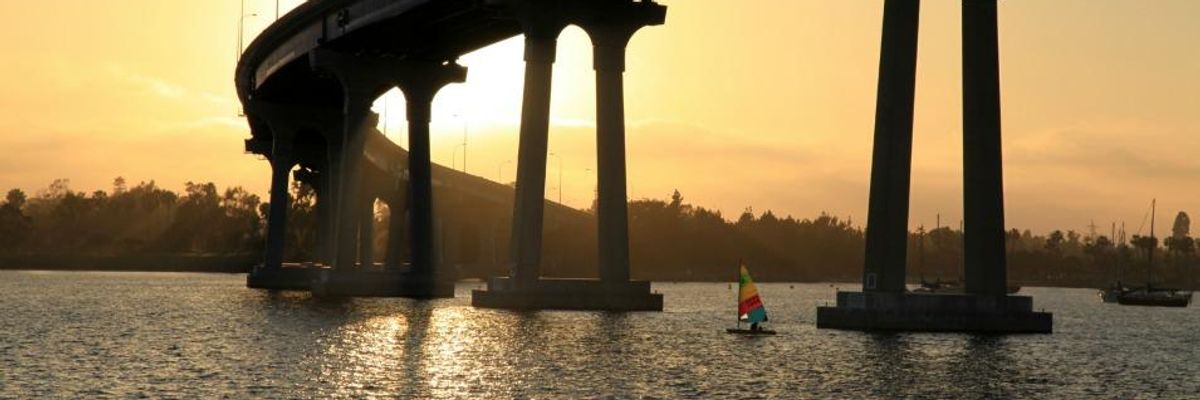San Diego authorities filed a lawsuit on Monday against the agrochemical giant Monsanto, accusing the corporation of polluting the city's bay with carcinogenic chemicals that are so dangerous to human health they were banned in the U.S. more than 30 years ago.
The lawsuit was filed in federal court by City of San Diego and San Diego Unified Port District and focuses on Polychlorinated Biphenyls (PCBs). "PCBs manufactured by Monsanto have been found in bay sediments and water and have been identified in tissues of fish, lobsters, and other marine life in the Bay," the complaint reads.
"PCB contamination in and around the Bay affects all San Diegans and visitors who enjoy the Bay, who reasonably would be disturbed by the presence of a hazardous, banned substance in the sediment, water, and wildlife," the document continues.
As the San Diego Reader notes, the city's lawsuit charges that "the risks did not deter Monsanto from trying to protect profits and prolong the use of PCB compounds such as Aroclor, as shown in a report from an ad hoc committee that Monsanto formed in 1969."
This is despite the fact that, according to the Environmental Protection Agency, PCBs "have been demonstrated to cause cancer, as well as a variety of other adverse health effects on the immune system, reproductive system, nervous system, and endocrine system." Dangers to human health led to a domestic ban on the domestic manufacture of PCBs in 1979.
By that time, however, PCBs had already spread through ecosystems, where they have remained to the present-day.
Monsanto was responsible for 99 percent of U.S. production of this dangerous chemical, according to a report from Food & Water Watch.

